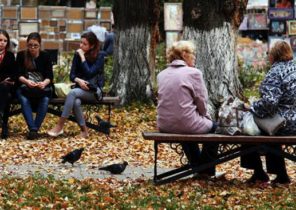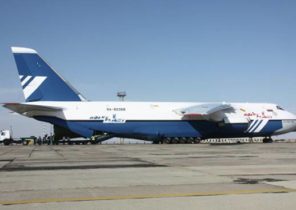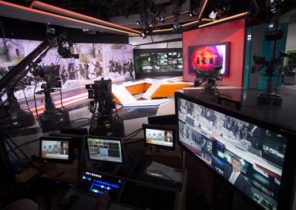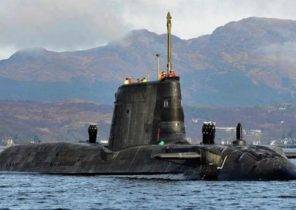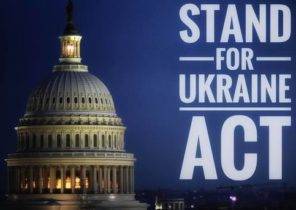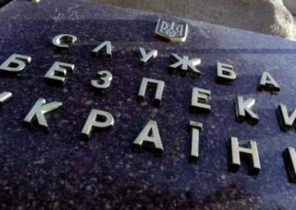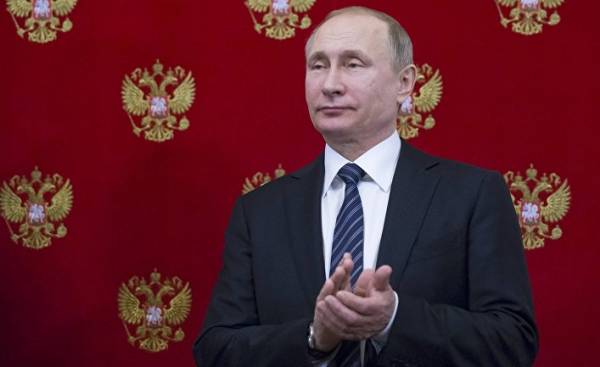
The stage for the current confrontation between Russia and the West were prepared long before 2000, which came to power Vladimir Putin. The problem was that after the collapse of the Soviet Union, the peace and order failed to install on new, equal terms.
After 1989 the Eastern bloc began to crumble, in the international arena faced two incompatible points of view. In the West, believed that there is nothing to change. Atlantic community actually won the cold war, demonstrating the superiority of Western order, and Russia remained only to join the Western world. She really opened the door — but on the wrong terms. It made it clear — albeit in inconsistent and contradictory form — even Boris Yeltsin. In the end, Putin continued this line, but much tougher. The West invited Russia to an extended Atlantic community, at the time, as she wanted — and still wants — to become part of the reformed Western world and transformed Europe.
From the point of view of Mikhail Gorbachev — last Soviet leader — the cold war’s end seemed to be a time when Moscow and the Western powers could equal create a new political community. He believed that the historical West, the core of which served NATO and the European Union have to develop in the West in the broadest sense — a new community, one of the founders of which will also include Russia. It was crossed with various Gaullist ideas about creating some kind pancontinental “greater Europe” from Lisbon to Vladivostok.
However, the Atlantic powers were afraid that Russia is trying to drive a wedge between Europe and America, and rejected these ideas. Thus in practice, Russian and Western views not so very different from each other. The parties needed only a conciliation mechanism but it is this elusive ingredient and not found in the subsequent cold war years.
In the end, the end of the cold war only reinforced one side at the expense of another, but did not change the world order. Thus, in a structural sense the cold war never really ended. Russia could become part of the Commonwealth of winners, as Germany and Japan after 1945, but that she had in one form or another, to admit defeat that I could not go neither Yeltsin nor Putin and any Russian leader. Instead, institutions and ideas since the end of the cold war only intensified, driving Russia into a strategic dead end.
Thus, a relatively small divergence of views developed into a political schism. In the core of the confrontation still lies this old a choice between expansion and transformation. The existing order is transformed. It just expanded, which only exacerbated the situation. Europe and the world has not moved beyond the logic of the conflict, and kept it in new forms. As a result, Russia has reacted by moving towards a policy of counter-liberal political order, values of which, in its opinion, are implanted as part of the expanding world system, and not because they are good in themselves.
Without the Soviet Union as a restraining force on the world order established after 1989, was essentially unipolar, that is unsafe. Neither Russia nor China can or want to serve as a counterweight to the American-led system. However, they want the international order has become more pluralistic and that it has not been one dominant force. They need institutions like the UN, WTO and international institutions to work autonomously and impartially. Russian politicians are constantly talking about the transition to a more multipolar world.
The gap between the Atlantic proclaimed the order of values and their embodiment in reality can also be called a gap between principles and practices, or the problem of “double standards”. This problem allows a Russian to criticize the Western practice from the position of the West principles. For a long time, Moscow proclaimed itself a defender of “genuine Europe” from its degenerate modern version. Russia now declares himself to be the main bearer of the true European values, which, as she claims, the West, managed as a whole to lose. West, of course, these arrogant statements don’t like. However, for Russia, the promotion of the values of a certain kind means not only a return to obscurantist conservatism or an attempt to assert cultural and civilizational pluralism. The invocation of these values from her point of view, is also a challenge to all established at the end of the cold war political system.
Attempt to change not only the balance of claims of a different miroporiadka hegemony, but the nature of hegemony did not take place. Instead, Russia began to apply various forms of “soft containment”, uzhestochivhsiesya over time. The Ukrainian crisis of 2014 was only a symptom, not the cause of the collapse of the European security system.
The process of changing the current post-cold war order and the joint statement by Russia, China and other powers against the hegemony can hardly be called a new cold war. The cold war was a regional conflict with global consequences, while the current seismic shift is a global process with regional consequences. The speakers against the hegemony of the powers now put forward essentially the same requirements put forth by Russia in 1989. They achieve the transformation of global politics on the basis of pancontinental peace and order in Europe and a more pluralistic and equitable international system.
